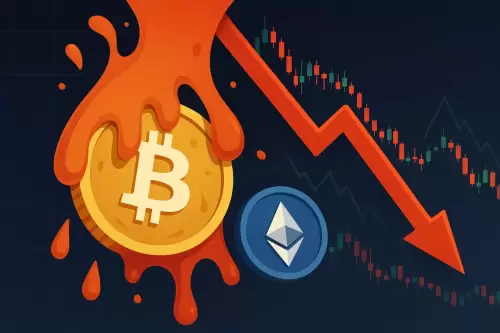 |
|
 |
|
 |
|
 |
|
 |
|
 |
|
 |
|
 |
|
 |
|
 |
|
 |
|
 |
|
 |
|
 |
|
 |
|
Cryptocurrency News Articles
Private Key, Crypto Theft, and Front-End Exploits: A New York Perspective on Staying Safe
Jun 27, 2025 at 06:03 pm
Dive into the alarming rise of crypto theft driven by private key compromises and front-end exploits. Learn how to protect your digital assets from increasingly sophisticated attacks.

Yo, crypto enthusiasts! The digital streets are getting wilder, and not in a good way. We're talking about a surge in 'Private key, Crypto theft, Front end exploits,' and it's hitting hard. Let's break down what's happening and how to keep your stash safe.
The Alarming Rise of Crypto Theft in 2025
2025 is shaping up to be a record-breaking year for crypto crime. A recent TRM Labs report reveals a staggering $2.1 billion in losses in the first half of the year alone. That's like, whoa! The bad guys are getting smarter, and their pockets are getting deeper.
The real kicker? Most of these thefts—over 80%—come from private key compromises and front-end exploits. These aren't your run-of-the-mill hacks; they're targeted, sophisticated attacks that often involve social engineering and infrastructure vulnerabilities. Think about it: tricking you into handing over your keys or finding a sneaky way into a crypto platform's interface. The average breach is now clocking in at nearly $30 million! Sheesh!
Private Key is the Key
Your private key is basically the master key to your crypto kingdom. Lose it, share it, or get it snatched, and you're toast. As one article pointed out, your private key is like the password to your email account, and without it, you're locked out. Crypto keys are the backbone of the Blockchain’s secure atmosphere, and ensure your digital assets are accessible only by you.
Here's the lowdown on how it works:
- Private Key Generation: A long, random string that's your unique signature.
- Public Key Extraction: Derived from your private key using complex math. Shareable, but doesn't reveal your private key.
- Wallet Address Creation: A shorter, complex version of your public key used to receive crypto. Think of it as your bank account number.
- Sending Crypto: You sign transactions with your private key, which the blockchain verifies.
Front-End Exploits: The Sneaky Backdoor
Front-end exploits are another major headache. This is where hackers target the user interface of crypto platforms to steal funds. It's like breaking into a bank through the front door while everyone's distracted.
And get this: some scammers are even compromising legitimate developer accounts on the Google Play Store to upload fake crypto wallet apps! These apps trick you into entering your recovery phrase, giving the thieves direct access to your funds. Cyble Research and Intelligence Labs found 20 of these malicious apps disguised as popular wallets like Hyperliquid and PancakeSwap. That's some serious chutzpah!
The Geopolitical Angle: It's Getting Political
As if things weren't complicated enough, geopolitical tensions are now playing a role in crypto hacking. TRM Labs highlighted groups like Predatory Sparrow, a pro-Israel hacker collective, targeting Iranian exchanges. This adds a whole new layer of complexity to the threat landscape. It's not just about money anymore; it's about making a statement.
What Can You Do? Stay Street Smart!
Alright, so how do you stay safe in this digital jungle? Here are a few tips:
- Protect Your Private Keys: Treat them like gold. Never share them, and store them offline in a secure hardware wallet.
- Be Wary of Phishing: Don't fall for scams asking for your recovery phrase or other sensitive info.
- Download Apps Carefully: Only download apps from verified developers, and always check reviews.
- Enable Security Features: Use multi-factor authentication, Google Play Protect, and reputable antivirus software.
- Stay Informed: Keep up with the latest security threats and best practices.
My Two Satoshis: A Wake-Up Call
Honestly, the rise in private key compromises and front-end exploits is a wake-up call for the entire crypto industry. We need better security practices, stronger international cooperation, and a more proactive approach to protecting users. Otherwise, we're just handing over our digital fortunes to the bad guys.
It's time to get serious about security. The stakes are too high, and the risks are only getting bigger. Let's make sure we're not the next headline about a multi-million dollar crypto theft.
So there you have it, folks. Stay vigilant, stay safe, and remember: in the world of crypto, you're your own bank. Act like it!
Disclaimer:info@kdj.com
The information provided is not trading advice. kdj.com does not assume any responsibility for any investments made based on the information provided in this article. Cryptocurrencies are highly volatile and it is highly recommended that you invest with caution after thorough research!
If you believe that the content used on this website infringes your copyright, please contact us immediately (info@kdj.com) and we will delete it promptly.






























































